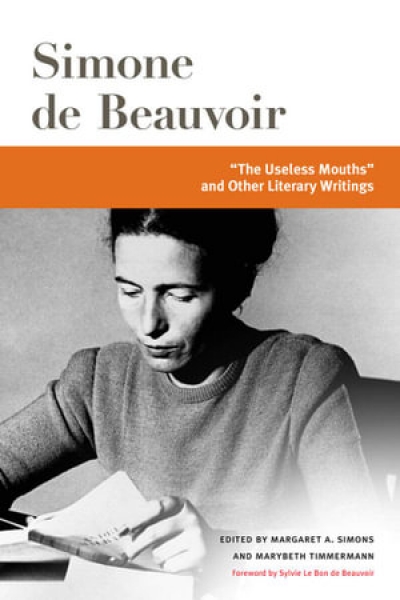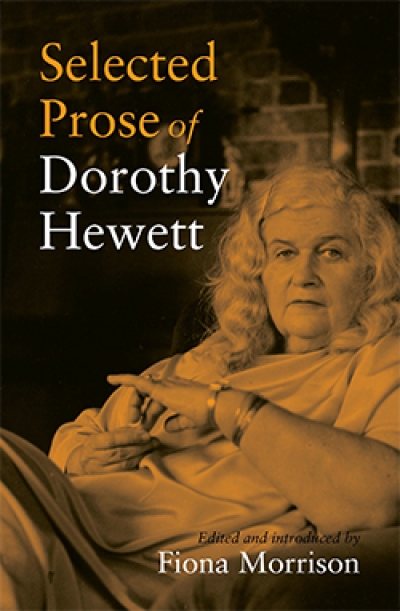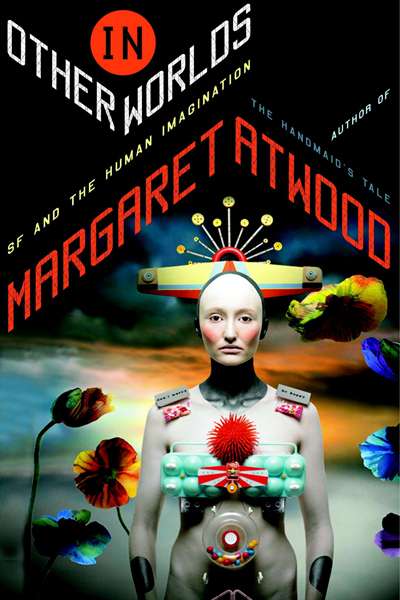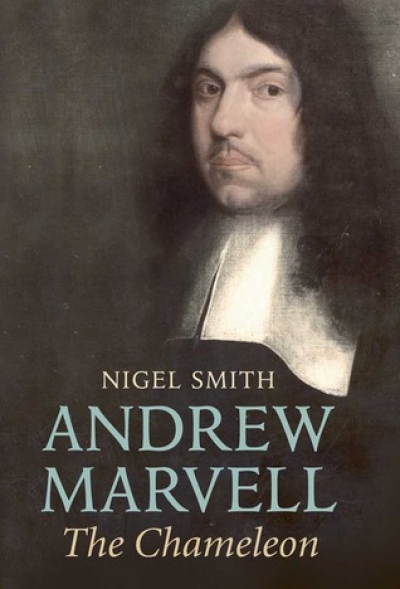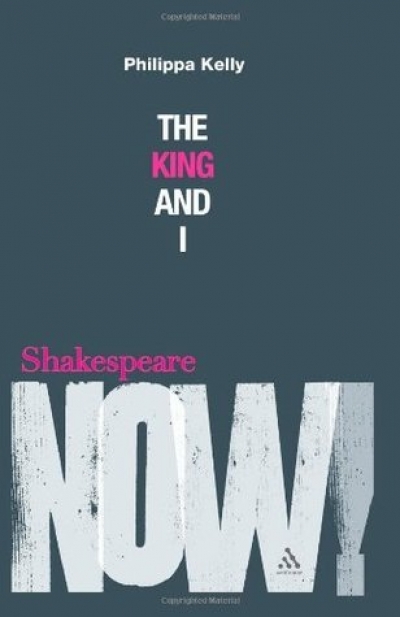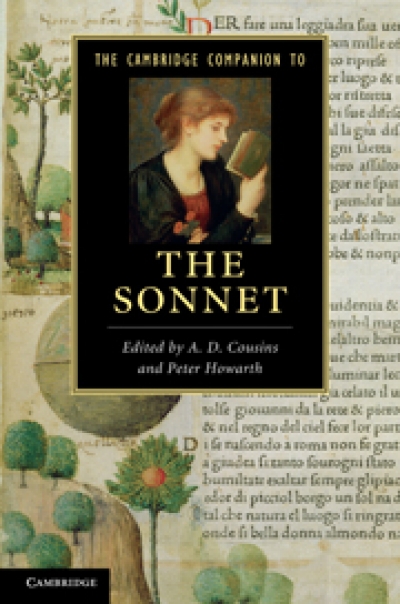Literary Studies
‘The Useless Mouths’ and Other Literary Writings by Simone de Beauvoir, Margaret A. Simons and Marybeth Timmermann (editors)
Let the potential reader be warned from the outset: the editorial perspective of this anthology of Simone de Beauvoir’s literary writings is disturbingly unsettled. If the intended audience is the ‘Beauvoir scholars’ alluded to in the jacket blurb, one cannot but imagine their irritation at the scores of quasi-Wikipedic notes covering almost every person mentioned in the text, and providing such information as ‘Brittany is a region in northwestern France with a distinct Celtic heritage’, or ‘The Champs-Elysées (Elysian fields) is a famous boulevard in Paris’. If the target is, rather, a culturally tabula rasa (freshman student?) readership, then the introductory essays for the Beauvoir texts are surely pitched too high, for many of them are scholarly, sophisticated, and thought-provoking. To account for these discrepancies would require an article of its own. Even then it would be hard to explain an editorial position that allows Proust to be presented as a ‘French modernist author best known for his monumental work, À la recherche du temps perdu (Remembrance of Things Past or In Search of Lost Time) characterised by an exploration of memories through free association reflecting Proust’s interest in Freud’s analytic method’.
... (read more)Who is Ozymandias?: And other puzzles in poetry by John Fuller
Those who write about poetry these days don’t go in much for lightness. More often their solemnity springs from the need to score research points or from their front-line positions in gang wars. If only the verbal art could have a critic who trod as lightly as the epigrams of Laurie Duggan or the juxtapositional poems of Jennifer Maiden. But wishes are not horses, and we must be grateful for what we’ve got. Recently to hand is an agreeably jaunty book of essays from the Oxford poet John Fuller. He certainly likes to keep it light and clear: pedagogical in the gentlest way. As critic he reads hard, but writes soft: a close reader with a free rein, we might say. And he knows that any modern poem is, metaphorically, a hybrid between layered onion and head of broccoli.
... (read more)Best known for her poetry and plays, Dorothy Hewett was also the author of novels, short stories and numerous reviews, articles and lectures. An excellent Collected Poems (Fremantle Arts Centre Press, 1995), edited by William Grono, has been complemented by Selected Poems of Dorothy Hewett (2010). The highlight of Hewett’s prose writings as a whole is her brilliant autobiography, Wild Card (1990), in which she presents aspects of her tumultuous life story from 1923 to 1958. UWA Publishing will reissue this work in May 2012, a decade after her death. Hewett’s life and work cry out for a full-scale biography. Fiona Morrison’s Selected Prose of Dorothy Hewett fills some of the gaps in Hewett’s published record of articles, reviews, lectures, and journalism.
... (read more)In Other Worlds: SF and the Human Imagination by Margaret Atwood
As contemporary author fan bases go, Margaret Atwood’s must be among the broadest. She is read at crèches, on university campuses, and in nursing homes. Feminists, birders, and would-be writers jostle to see her perform at literary festivals. Yet despite an Arthur C. Clarke Award and, in her own words ...
... (read more)Activist Poetics: Anarchy in the Avon Valley by John Kinsella, edited by Niall Lucy
This book of essays by the vegan-anarchist-pacifist poet John Kinsella on the relationship between political activism and poetry raises two big questions: how do we live in modernity? and what is it like to live beyond the mainstream? The first question lies behind the great cultural movements of the West, from Romanticism to postmodernism. Whether writers have embraced modernity or rejected it, they have long struggled with the very conditions that brought literary culture into existence. The utopian possibilities of modernity have always been in conflict with modernity’s material realities.
... (read more)When Arnold wrote his famous sonnet, he could have been anticipating John Bell’s book, which repeatedly asks provocative questions about the man and the work that have been his life’s inspiration – and arrives at much the same conclusion as Arnold. We don’t go to Shakespeare for mere knowledge, but for insight, challenge, and enrichment, and perhaps to help us know ourselves and others better. Further, as Bell says: ‘There is no worldwide conspiracy to keep Shakespeare alive. He survives because actors want to go on performing him and audiences want to listen.’ These sentences come from his second-last page, and the rest of the book helps us to understand why.
... (read more)British author Glen Duncan released his eighth novel this year, the title of which, The Last Werewolf, is fairly self-explanatory. Although a much more philosophical (and entertaining) read than one might imagine in our current supernaturally-dominated ‘box-office’ novel landscape, Duncan’s book was a marked departure from an author better known for h ...
In 1629, Charles I of England sent Daniel Nys to Europe to buy art. Along with works by Titian and Rubens, Nys bought Mantegna’s masterpiece, The Triumphs of Caesar (1486–92). This work on nine large panels is at once sombre and full of wonders. Of its time the most accurate representation of Roman customs and costumes, it is also a work in which precision has a strange effect, almost of tenderness. Still hung at Hampton Court, it was one of only a few works that Cromwell kept after the regicide.
... (read more)Literary critics used to adopt a persona claiming disinterested separation from the text being analysed. Critical theory, in particular post-colonial and gender studies, eroded this stance, showing that criticism is always self-interested, concealing or inadvertently revealing tacit assumptions stemming from the critic’s biography, class, gender, and political persuasions. As a result, it is common nowadays for critics to be more self-aware about their own value systems. In some ways, this returns us to a Romantic understanding of interpretation reflected in Hazlitt’s ‘It is we who are Hamlet’, Coleridge’s ‘I have a smack of Hamlet myself, if I may say so’, and Keats’s ‘axioms in philosophy are not axioms until they are proved on the pulses ... you will know exactly my meaning when I say, that now I shall relish Hamlet more than I ever have done’.
... (read more)The Cambridge Companion to the Sonnet edited by A.D. Cousins and Peter Howarth
It is a measure of the stature of William Wordsworth among his younger contemporaries that he would find himself subject to innumerable challenges over the early years of the nineteenth century. What upset the second generation of Romantic poets – Percy Bysshe Shelley, Lord Byron, and, to some extent ...
... (read more)

